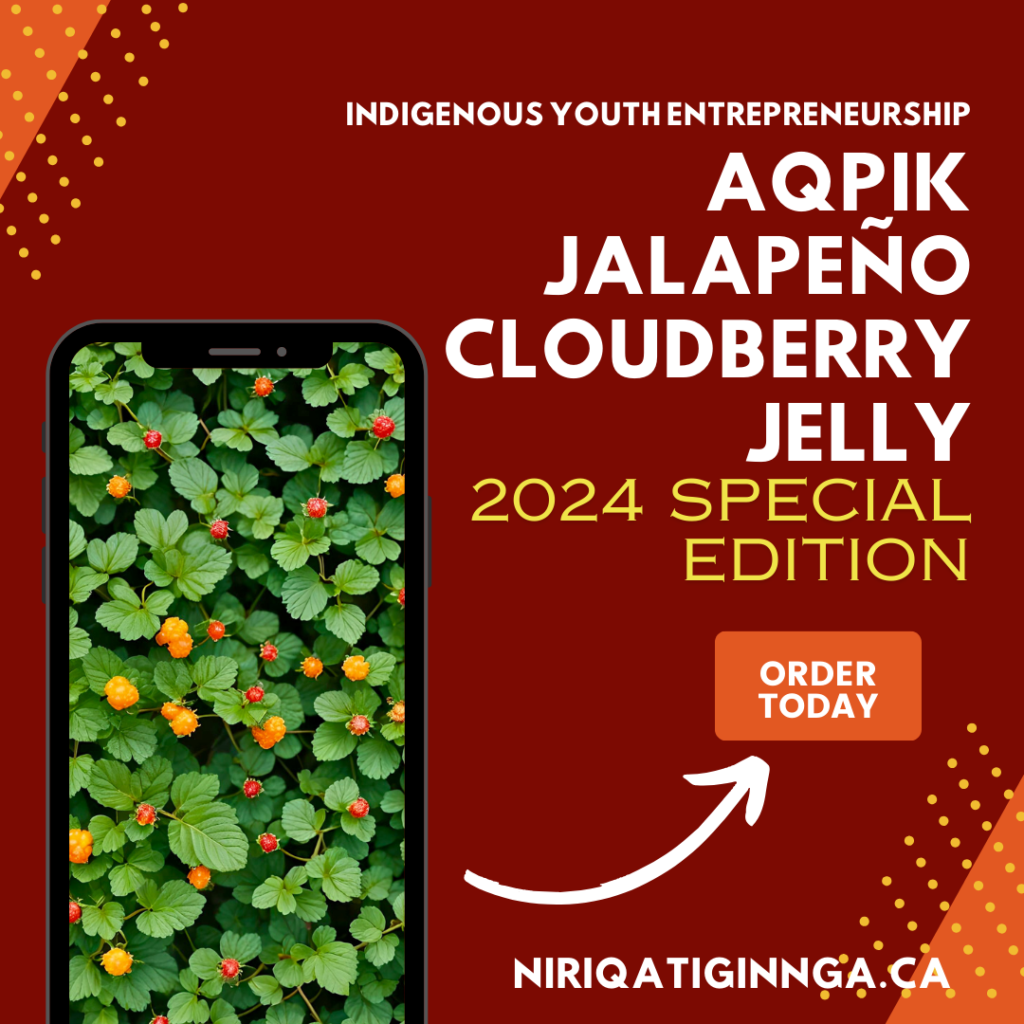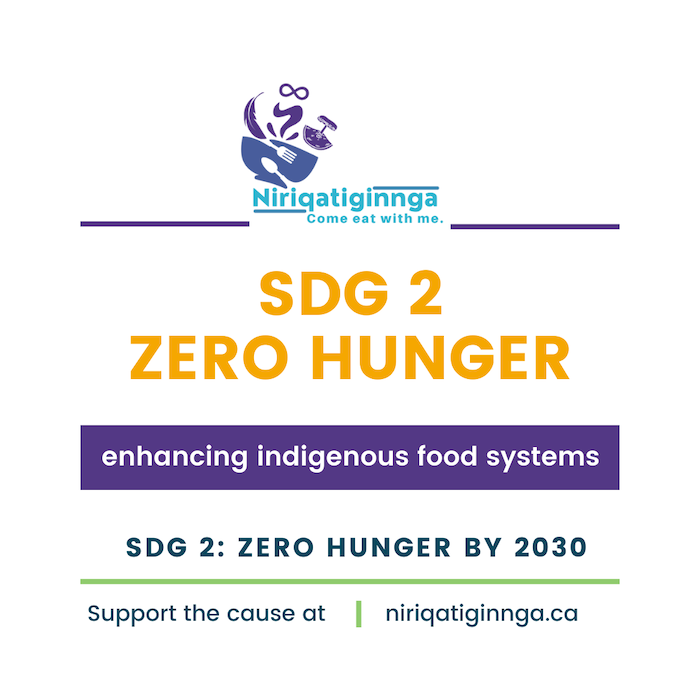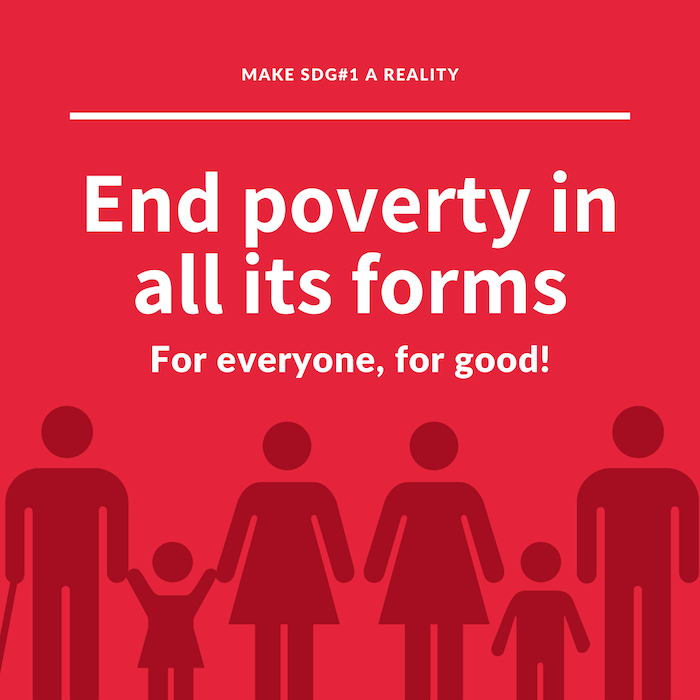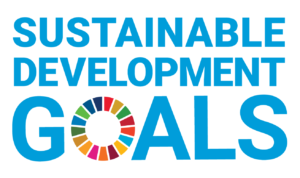Food is more than just sustenance; it’s a cornerstone of culture, tradition, and community. At the heart of our Niriqatiginnga project’s emerging framework for northern food systems innovation, food literacy takes center stage as a vital component.
In today’s update, we’ll explore the significance of food literacy within Niriqatiginnga’s mission and how it is being designed to empower individuals and communities to better understand and make informed food choices for a sustainable future.
The Role of Food Literacy for Niriqatiginnga
Our Niriqatiginnga project’s journey towards addressing food security in our home and northern communities encompasses several key pillars, with food literacy being one of the fundamental building blocks. But what exactly is food literacy, and why is it so important?
- Understanding Northern Food Systems: Food literacy goes beyond simply knowing how to prepare a meal. It involves understanding the entire food system, from production to consumption. The Niriqatiginnga project recognizes this by working to better understand where our food comes from, how it’s grown, and the processes it goes through. This way, people and families can make informed choices that benefit their health and well-being.
- Fostering Healthy Eating Habits: Food literacy equips people with the knowledge to make healthier food choices. By understanding the nutritional value of different foods and their impact on health, people, families and communities can take proactive steps toward improved well-being.
- Reducing Northern Food and Shipping Waste: One of the consequences of food insecurity is often food waste. Learning about food literacy teaches people how to also minimize waste by making the most of available resources. This not only conserves food but also has positive implications for the environment. Another issue we want to explore on this project is how much waste from northern shipping ends up staying in the community, contribution to pollution and environmental damage.
- Strengthening community health and wellbeing: Food is a unifying force within communities. It is belonging. Food literacy initiatives that will be part of the Niriqatiginnga project are being designed to also bring people together. As a group, we want to learn, share, and celebrate our culinary traditions with others. This part of the project is intended to strengthen community bonds and build new, sustainable relationships and opportunities with our communities.
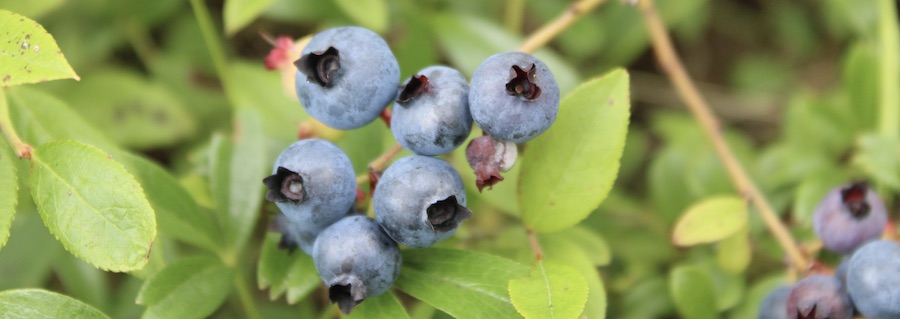
Empowerment Through Knowledge
Ultimately, food literacy is about empowerment through knowledge. In many northern communities, where access to diverse and affordable food options is limited, having the skills and information to make the most of available resources is invaluable.
As this exciting new project unfolds over the coming months, please stay tuned for more insights and updates into how Niriqatiginnga plants to make a difference.
What kinds of questions are we planning to study?
Some of the questions we are going to explore on this new project include:
Arts and Culture Integration:
- How can traditional Indigenous art forms be incorporated into food security initiatives?
- What role can storytelling, oral traditions, and visual arts play in raising awareness about food security issues?
- How can cultural events and festivals be leveraged to promote Indigenous food sovereignty?
- What cultural practices can be revitalized to strengthen the connection between communities and their traditional foods?
Entrepreneurship and Economic Integration:
What entrepreneurial opportunities can be created within Indigenous communities to address food security?
- How can business incubation programs support Indigenous entrepreneurs in the food sector?
- What are the economic benefits of local food production and how can they be maximized?
- How can Indigenous-led cooperatives and partnerships enhance economic development related to food security?
Technology and Data Integration:
What technological innovations can improve supply chain efficiency in remote Indigenous communities?
- How can digital tools and platforms be utilized to facilitate direct food orders and payments for community members?
- What data management solutions can help track and analyze food sales, consumption patterns, and supply chain performance?
- How can technology support the collection and sharing of traditional ecological knowledge related to food resources?
Get involved! Take part!
We are thankful to our partners and supporters at the Arctic Buying Company, Chocolatier Constance Popp and the University of Minnesota Duluth for supporting our Niriqatiginnga project and its participating students and youth, community artists, researchers and aspiring cultural entrepreneurs.
Would you like to learn more about our Niriqatiginnga project? We’re looking to collaborate with artists, entrepreneurs and organizations interested in tackling food insecurity head on. If you’d like to learn more, we’d like to hear from you. Contact us today at niriqatiginnga@gmail.com
